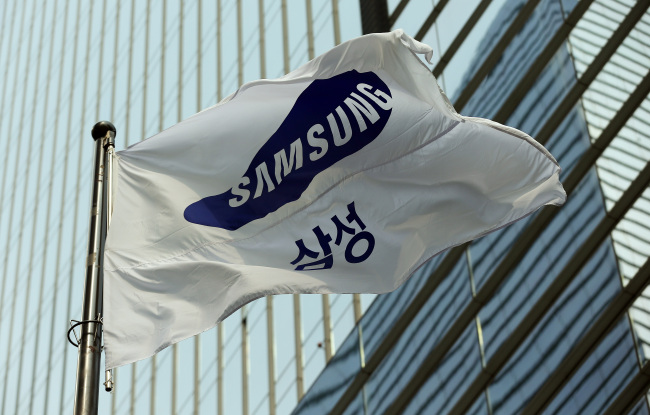삼성그룹이 올해부터 신입사원 선발에 적용하는 '대학총장 추천제'를 둘러싼 논란이 확산되자 이에 대해 적극적으로 해명하고 나섰다.
삼성 관계자는 연합통신과의 인터뷰에서 26일 추천 인원이 특정 지역과 대학에 편중됐다는 지적에 대해 "휴대전화·반도체·기계공학 등 삼성이 필요로 하는 이공계 인력 졸업자 수가 다르기 때문"이라고 답변했다.
삼성이 지난주 전국 200여개 대학에 통보한 추천 인원이 외부로 알려지면서 논란이 확산되고 있다.
이에 대해 삼성 관계자는 "대학총장 추천을 삼성 입사로 잘못 인식하면서 오해를 불러 일으킨 것으로 보인다"며 "총장 추천제를 도입한 것은 서류전형만으로는 뽑을 수 없는 인재를 찾기 위한 노력"이라고 말했다.
대학 총장 추천을 받으면 삼성의 신입사원 선발 과정에서 서류전형 없이 삼성직무적성검사(SSAT)에 응시할 수 있는 자격이 주어진다.
다음은 연합뉴스와 삼성 관계자와의 일문일답.
-- 대학별 추천 인원수를 왜 공개하지 못하는가.
▲ 민간기업의 인사 절차를 세세하게 언론에 공개하는 게 바람직하지 않다. 선진기업 어느 곳도 인사 전형을 공개하지 않고 있다.
-- 추천 인원 배정 기준은.
▲ 최근 몇 년 동안의 대학별 입사자 수, 대학 규모 등을 고려해 배정했다.
-- 이공계 쏠림이라는 지적이 있는데.
▲ 삼성이 수행하는 사업은 휴대전화, 반도체, 기계공학 등 이공계 인력 수요가 매우 많다. 기업이 필요한 부문에서 필요한 인력을 채용하고자 하는 것은 당연한 일이다.
-- 성균관대에 가장 많은 추천권을 배정한 이유는.
▲ 일부에서 성균관대가 삼성의 재단이기 때문에 추천권 배정이 많았다고 비판하는데 이는 사실과 다르다. 성균관대를 비롯해 한양대, 경북대, 인하대 등은 삼성과 산학협력을 통해 특성화 학과를 개설해 운영하고 있다. 특성화 학과 졸업생 중 다수가 삼성에 입사하다 보니 다른 대학의 입사자 수보다 많은 게 사실이다. 성균관대가 삼성의 재단이기 때문에 숫자가 많다는 것은 오해에서 비롯된 것이다.
-- 호남지역 대학에 배정한 추천 인원이 적다는 지적이 있다.
▲ 경북대나 부산대에 비해 호남 쪽 대학 추천 인원이 적은 것은 이공계 인력에 대한 삼성의 수요 때문이다. 경북대나 부산대는 오래전부터 전자공학, 기계공학, 조선공학 등 이공계 관련 학과에 특화된 졸업생을 많이 삼성에 입사시켰다. 삼성은 매년 입사자의 35%를 지방대에서 선발할 정도로 채용정책을 균형있게 가져가려고 노력하고 있고, 인도나 러시아 등 외국에서도 인재를 채용하는데 호남이라고 해서 차별을 한다는 것은 어불성설이다.
-- 여대 추천 인원이 적다는 지적도 있다.
▲ 대졸 신입사원 가운데 30% 정도는 여성인력으로 뽑으려고 노력하고 있다. 다만 우리가 선발하는 대졸신입사원은 대부분 이공계 인력인데 이 부문에서 여대의 졸업생 배출 숫자가 남녀공학 대학에 비해 적은 게 현실이다.
-- 왜 이런 논란이 일어나고 있다고 보나.
▲ 대학총장 추천을 곧 삼성 입사로 잘못 인식하고 있는 것이 오해를 불러 일으킨 것으로 보인다. 총장 추천을 받은 학생들도 SSAT와 면접을 통과해야 입사할 수 있다. 다만 서류전형을 면제해주는 것인데 이를 마치 특혜로 오해 하고 있다. 대학총장 추천을 받았다고 삼성에 입사할 수 있다고 단정할 수 없다. 총장 추천제를 도입한 것은 서류전형만으로는 뽑을 수 없는 인재를 찾기 위한 노력이다. 학점이나 이른바 '스펙'보다는 희생정신, 리더십 등을 갖춘 학생들을 선발하기 위한 목적이다.
 |
(연합) |







